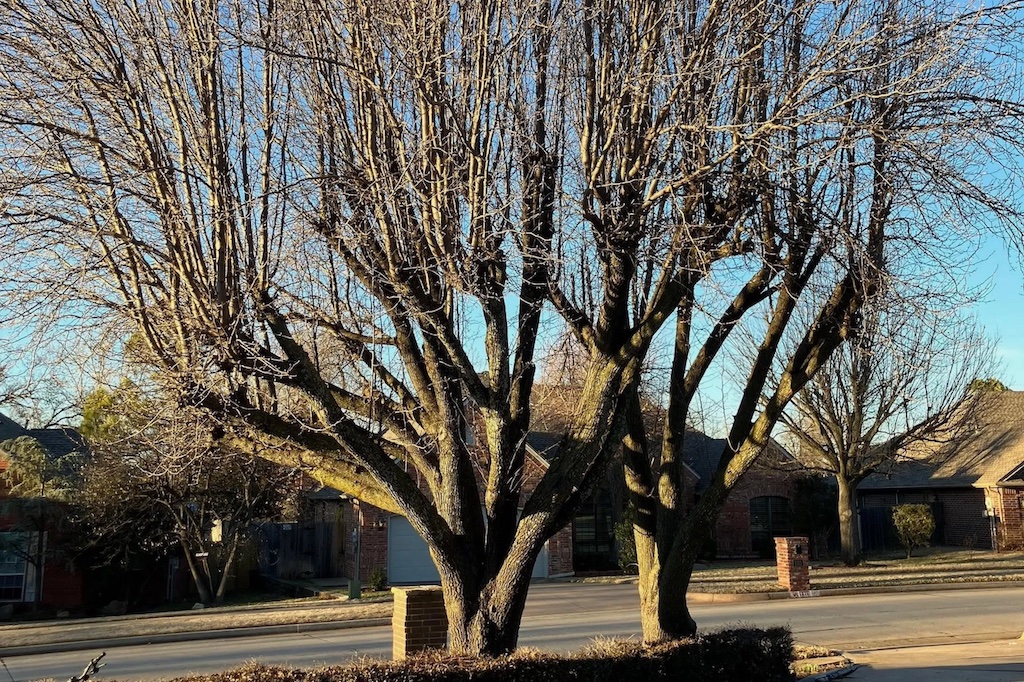A homeowner took to Reddit's r/arborists community to seek advice on prolonging the life of three Bradford pear trees in their front yard.
"It looks like these trees were topped off in 2015," the user explained. "I mainly want to prolong their life and also protect my property from the branches that are growing toward the house because we get pretty nasty ice storms here every few years."
Along with their question, the user shared before-and-after photos of the trees.
Reddit's arborist community politely informed the homeowner that Bradford pears are an invasive species that is not native to their area. When asked why they wanted to keep the problematic trees, the original poster replied, "We just bought this house and not in the budget."
Bradford pears are notorious for their weak branch structure, making them prone to breakage and property damage, especially during severe weather events. Topping or heavily pruning these trees only exacerbates their structural issues.
As one commenter put it, "You're not gonna get anything on here other than 'cut them f****** down and replant with natives.'"
Another Redditor suggested a short-term solution: "If you are intent on keeping them, they need to be thinned out dramatically… It won't fix anything, but it will reduce the weight that is bearing on those decaying stubs and maybe buy you a little time until they inevitably fall apart anyway."
However, the consensus was clear: The best course of action is to remove the Bradford pears and replace them with native, eco-friendly alternatives.
If a new tree isn't in the Redditor's budget, even a temporary lawn replacement of native plants, clover, buffalo grass, or xeriscaping can save time and money on maintenance, conserve water, and create a healthier ecosystem for pollinators.
While budget constraints are a valid concern, investing in native landscaping now can lead to long-term savings and environmental benefits. Native plants are adapted to local conditions, requiring less water, fertilizer, and pesticides than non-native species. They also provide essential habitats and food sources for birds, butterflies, and other wildlife.
As one commenter wisely advised, "Any time or money you spend trying to prolong their life would be better spent on establishing new trees."
By embracing native landscaping, homeowners can create a beautiful, sustainable yard that benefits both their wallet and the local environment.
Join our free newsletter for easy tips to save more, waste less, and help yourself while helping the planet.









